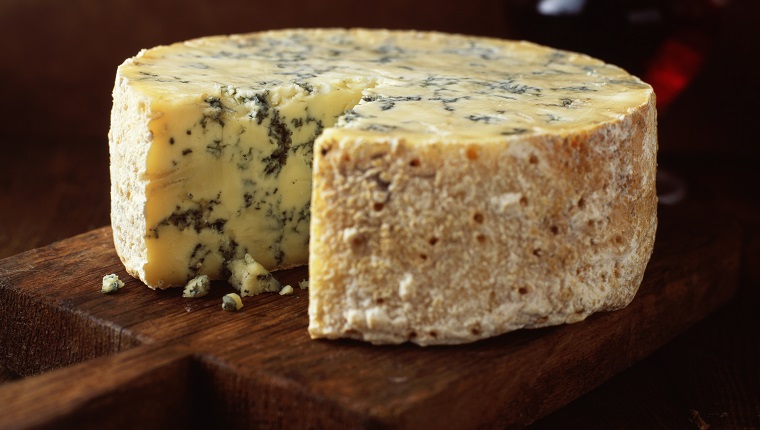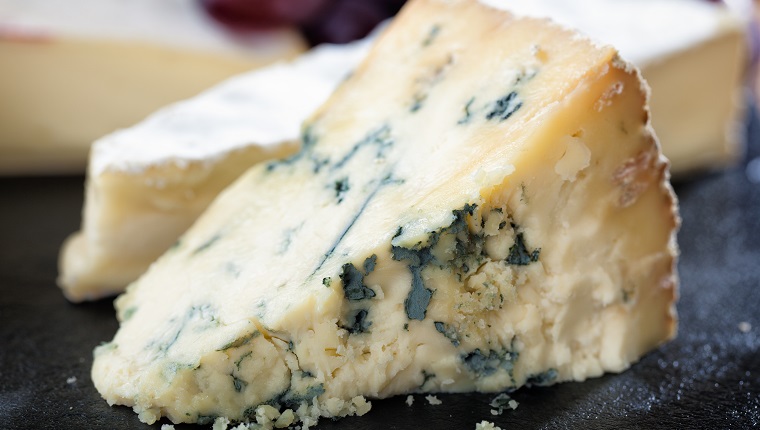Can dogs eat blue cheese? Maybe you’ve wondered if you could share some with your dog while crumbling blue cheese into your lunchtime salad or cutting some slices for a grilled cheese sandwich. If humans can eat blue cheese, can dogs safely eat it too?
The short answer is no, dogs can’t safely eat blue cheese. While cheese in general is usually not toxic for dogs, the addition of a certain fungus in blue cheeses can prove problematic for dogs and bring on a range of symptoms.
So keep blue cheeses like gorgonzola, stilton, and Roquefort away from your dog at all times. If your dog eats some by accident, it’s best to consult your veterinarian. Here’s what you need to know about blue cheese and dogs.
Why Is Blue Cheese Bad For Dogs?
Cheese in general is not considered to be toxic for dogs, even though it does contain an amount of lactose that can aggravate dogs who suffer from lactose intolerance issues.
While this is true of blue cheeses too, blue cheeses are also produced using a fungus that can negatively impact a dog. This fungus helps to give blue cheeses their distinctive marbled look, but it can also produce roquefortine C, which can bring on a number of symptoms in dogs.
Some of the most common symptoms in dogs that roquefortine C can produce include:
- Seizures
- Diarrhea
- Vomiting
Additionally, because cheese is a food that is high in fat, it is not really suitable for dogs on a regular basis. Eating too much cheese — whether blue cheese or otherwise — could help to push your dog onto a path of canine obesity.
What Should I Do If My Dog Eats Blue Cheese?

First of all, if your dog sneaks in a very small bite of blue cheese, there is a chance that they will be okay. Take away the rest of the cheese, and monitor their condition for any of the symptoms mentioned above. If they seem to be getting worse, call your veterinarian.
However, if you discover that your dog has managed to consume a large amount of blue cheese, it it safe practice to contact your veterinarian straight away.
They will be able to advise you on which signs and symptoms could be cause for alarm and whether your dog needs to seek out medical help.
Has your dog ever accidentally eaten some of your blue cheese? Did they feel sick afterward? Let us know in the comments below!




